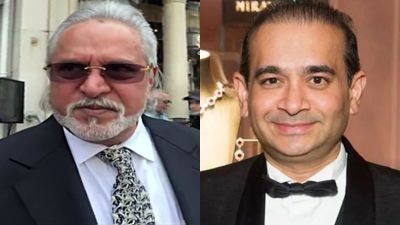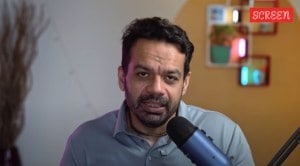Three writers are remaking the face of the English-language short story
Lucy Caldwell, Jonathan Escoffery and Jennifer Nansubuga Makumbi are experimenting with the form and exploring subjects such as wealth, democracy and immigration
 Lucy Caldwell (Credit: lucycaldwell.com)
Lucy Caldwell (Credit: lucycaldwell.com)Once upon a time, short fiction collections were prescribed for reading slumps. They were also suggested to adults with short attention spans. But the short story doesn’t remedy just such literary ailments; it is fast becoming the form most suited to today’s artistic needs: one marked by widespread global migration, escalating climate crisis, a resurgence of populist politics and the alienating effects of late-stage capitalism, defined by a frightening digital dependence.
There are few contemporary authors effectively using the form to such aesthetic ends. One of them is Belfast-born playwright, novelist and short story writer Lucy Caldwell. An interesting feature of her short fiction is the use of the second person voice, the intimate use of the word ‘you’ which instantly draws the reader into the emotional world of the characters. Her collections of short stories include Multitudes (2016), Intimacies (2021) and Openings (2024).
Speaking at the Jaipur Literature Festival 2025, Caldwell noted how she achieved the technical prowess needed for a short story when she started approaching them as ‘spells’ instead of focussing too much on ‘plot’. In her work, Urdu, German and Northern Irish phrases mingle with the English language. The political import of such experimentation is heightened due to how the short story has a shorter publishing cycle than a novel and the use of foreign language words is now irredeemably embedded in the cultural memory of the English language — they are no longer translated or glossed over.
Much like Caldwell, American writer Jonathan Escoffery plays with both the personal and the political. His collection If I Survive You was deservedly on the shortlist for the 2023 Booker Prize and is interlinked short fiction centred on an immigrant family from Jamaica with many parallels to Escoffery’s upbringing in Miami. With interlinked short fiction, each story in a collection has recurring characters but is also self-contained and may be read as such. What this form achieves for Escoffery is the depiction of the fragmented political and social reality of his immigrant characters. His protagonist, also the narrator, in most of the stories from If I Survive You is Trelawny, the son of immigrant parents from Jamaica. Through him, Escoffery forcefully presents a picture of late-stage capitalist United States of America and the contradictions that are a part of its political make-up as ‘the land of the free and home of the brave’ where immigrant dreams are destined to come true through hard work and resilience. Escoffery lays bare the neoliberal world order and its facade of democracy.
Another author is changing the game when it comes to immigrant stories in English-language short fiction. Ugandan-British writer Jennifer Nansubuga Makumbi, through her novels and short fiction, often plays with the Western literary imagination. Her intended readers are not White Anglo Saxon subjects occupying the urban landscapes of Britain but the Ugandan diaspora. Her collection of short stories Manchester Happened (2019) works to destabilise how news events such as the ‘migrant crisis’ come to be embedded in the populist imagination sans context and colonial histories of migration.
Navigating systemic racism, patriarchal cultural expectations, without romanticising the home of her largely women protagonists, Makumbi refuses to translate Ugandan words or provide context for a White western readership. ‘Let’s Tell This Story Properly’ from Manchester Happened is an exercise in appropriating the communal, oral and folkloric character of the short story form and applying it to the English-language literary imagination.
With Caldwell, Escoffery and Makumbi, the short story is gaining the critical appreciation often exclusively reserved for the form of the novel. One can only hope that the trend is here to stay.
Bhasin is a Delhi-based independent writer
Photos





- 01
- 02
- 03
- 04
- 05

























